How to Declare DMCA for Website - Protect Website Copyright - In today's digital age, protecting copyright of content on websites has become more important than ever. One of the effective tools to help you protect your content is the DMCA (Digital Millennium Copyright Act). This article will guide you on how to register your website with DMCA, helping to protect copyright and enhance the reputation of your website.
DMCA stands for Digital Millennium Copyright Act, a digital copyright law enacted by the United States to protect the rights of content owners in the online environment. DMCA helps prevent acts of copying, unauthorized use of content such as articles, images, videos, software, applications, and other creative products.

Why Should You Register DMCA For Your Website?
Registering DMCA for a website offers many benefits:
- Protect copyright content: Prevent acts of copying and unauthorized use of your content.
- Enhance reputation: Websites with DMCA Protected certification are considered more trustworthy in the eyes of users and search engines.
- Support handling violations: DMCA provides tools for you to report and request the removal of content infringing copyright.
Benefits of Registering DMCA
Registering DMCA for your website offers significant benefits in protecting copyright and managing online content. Here are the notable benefits of registering DMCA:
Protect Online Content
- Copyright protection certification: When you register DMCA, you receive a "DMCA Protected" badge, which proves that the content on your website is copyright protected. This reduces the risk of copyright infringement and unauthorized copying from third parties.
- Prevent unauthorized copying: DMCA helps you prevent the unauthorized copying or use of your content. If someone copies or posts your content without permission, you can request them to remove the infringing content through DMCA.
Enhance Website Reputation
- More reliable website: The presence of the DMCA badge on the website shows that you care about protecting copyright and complying with the law. This increases the credibility of the website in the eyes of users and search engines.
- Increase SEO ranking: Websites with the DMCA badge will be rated higher in Google's search algorithms, which can help your website achieve a higher position in search results.
Manage and Monitor Copyright Infringement
- Monitor copyright infringement: DMCA helps you track copyright infringement on your website and provides tools to request removal of infringing content.
- Quick processing: DMCA provides a quick and easy process for reporting and removing copyright infringement. You can track the status of removal requests and receive notifications when content is removed from the platform.
Enhance Security
- Anti-counterfeiting: DMCA also helps protect your website from acts of impersonation, impersonation, or unauthorized use of your brand and content.
- High security features: DMCA provides copyright protection tools with a high level of security, helping you protect your intellectual property effectively.
Customer Support Service
- Legal support: When facing copyright infringement issues, DMCA provides legal support and helps you request the removal of infringing content legally.
- Timely advice and support: DMCA's customer support services will help you resolve problems quickly, avoiding negative impacts on your website.
How to Declare DMCA For Your Website - Protect Website Copyright
Step 1: Access the Registration Page
Visit the DMCA homepage at https://www.dmca.com/. Here, you will see the DMCA's service options.

Step 2: Register an Account
Click the "SIGN UP" button to begin the registration process.
- Fill in complete personal information such as full name, email address, and password.
- Confirm the email to activate your account.


Step 3: Choose the DMCA Badge
After logging in, select "Get a FREE Badge" to receive a free DMCA badge.
- Choose the badge template you want to display on your website.
- Copy the HTML code provided.


Step 4: Add the Badge to Your Website
- Paste the HTML code into the appropriate location on your website, usually the footer or homepage.
- Make sure the DMCA badge is clearly displayed for users to recognize.

Step 5: Confirm and Activate
- The confirmation process may take 24 to 48 hours.
- After confirmation, the DMCA badge will appear on your website, certifying that the content is protected.

How To Report DMCA Violations
If you find that your content has been copied illegally, you can take the following steps to report it:
Method 1: Report Directly Through DMCA
- Log in to your DMCA account.
- Select "Takedowns" and click "Start a Takedown".
- Fill in all the information required to remove the infringing content.
- Submit the request and wait for processing.
Method 2: Report via Google
- Visit Google's DMCA support page: https://support.google.com/legal/troubleshooter/1114905?hl=vi
- Select "Web search".
- Fill in information about the infringing content and request removal.
- Submit the request and wait for a response from Google.
Check If Website Has DMCA Strike
- Visit the Google Transparency Report page: https://transparencyreport.google.com/copyright/overview?hl=vi
- Enter the website domain name in the search box.
- View the results to see if there is any copyright infringement information related to your website.
Important Notes
- Register early: You should register DMCA as soon as you start building your website to protect your content early on.
- Update content regularly: Ensure that the content on your website is always new and of good quality to avoid being copied.
- Monitor violations: Regularly check and promptly handle copyright infringement acts.
Registering DMCA for a website is an important step in protecting copyright content and enhancing the website's reputation. Hopefully, through this article, you have clearly understood how to register and use DMCA to protect your intellectual property in the online environment.
How to note and handle copyright infringement
Notes Before Handling DMCA Violations
Verify Violation
Before taking any action, you need to clearly verify that the copied content is yours and without permission. Verification may include:
- Review the copied articles, images, videos, or other content.
- Ensure that you have legal ownership or copyright to that content.
- If it is an image or video, you need original evidence such as the original file or posting time.
Ensure Content Is Exclusive
Before requesting removal, you need to make sure that the content you are protecting is exclusive or you have the right to use it, avoiding cases where your content is part of what is allowed to be used publicly or has a sharing license.
Check Website Terms
Read and understand the terms and regulations of the platform or search engine where the content is infringed (e.g. Google, YouTube, Facebook...). Each platform has different handling methods and may require you to provide clear evidence of ownership.
How to Handle Copyright Infringement Under DMCA
Report DMCA Violations
When you confirm a violation, the next step is to request removal of the infringing content from that website. Here are the steps you need to take:
Report via DMCA
- Log in to your DMCA account.
- Select "Takedown Requests" and begin the request creation process.
- Provide complete information about the infringing content, including:
- URL of the copied content.
- URL of your original content.
- Description of copyright infringement.
- Sign the request and send the takedown request to DMCA.
Wait for feedback from DMCA. If valid, DMCA will contact the infringing website and request the content be removed.
Report via Google
Visit Google DMCA Takedown: Google DMCA.
Fill in information related to the violation, including the URL of the infringed content and prove your ownership.
After submitting the request, Google will conduct an inspection and, if necessary, remove the content from the search results.
Notify the Owner of the Infringing Website
If you want to directly handle the infringement issue without going through DMCA or Google, you can:
- Contact the administrator of the infringing website directly via email or contact form (usually this information is in the footer).
- Send a notice requesting removal of infringing content or legal action will be taken.
Monitor and Ensure Content Is Removed
After you request removal, you need to check to make sure that the infringing content has been removed from the website or platforms. You can:
- Check website: Confirm whether the content still appears or not.
- Check search results: Recheck the results on Google to see if the content is still displayed in searches.
Preserve Evidence
In case you need to take legal action later, you need to store all evidence related to copyright infringement:
Keep takedown notifications.
Take screenshots: If available, you need to take screenshots of the infringed content, including the date and time.
Save the emails or notification letters that you sent to the relevant parties.
Other Measures To Prevent DMCA Violations
Install Copyright Protection Tools
To prevent copying of content on your website, you can use copyright protection tools such as:
- Watermark: Add a copyright to images or videos to prove ownership.
- Protect content with encryption: Use encryption technology or anti-copying techniques to protect content on your website.
Update Copyright Protection Policy
Make sure your website has a clear and public copyright protection policy:
- Terms of use: Provide clear terms and conditions for users of your website.
- Copyright policy: Make sure you have a copyright page and ask users to respect your intellectual property.
Educate Users
Encourage users to respect intellectual property and original content:
- Provide information about DMCA: Explain DMCA and copyright protection on your website.
- Encourage reporting of violations: Encourage users to report copyright infringement when they discover it.
Handling copyright infringement is very important in protecting intellectual property in the online environment. DMCA provides a powerful tool to help you remove infringing content and protect your rights. Make sure you take all necessary steps and closely monitor violations to protect your content.
Pro DMCA Upgrade Packages
Enhanced Copyright Protection
Enhanced content protection: Pro package provides stronger protection features for your website, helping you protect all types of content from images, videos, articles to software.
Certified DMCA badge: The DMCA badge will be easily issued and can be displayed on all pages of the website to confirm that your content is protected by DMCA.
Automated Takedown Request Support
Automatically process takedown requests: With the Pro package, you can automatically process requests to remove infringing content, saving time and effort when receiving requests.
Quick processing: Requests to remove copyright infringement will be processed faster and more effectively than with the free package.
Frequent Infringement Monitoring
Content monitoring tracking: The Pro package provides online content monitoring services, helping you track new copyright infringements that occur on the internet. You will receive immediate notification when there is copyright infringement related to your content.
Automatic violation detection: The DMCA Pro system has the ability to automatically detect and report copyright infringements, minimizing the possibility of missing violations.
Smart Violation Reporting
Accurate and complete reports: The Pro package allows you to create more accurate and detailed DMCA violation reports, helping increase the success rate in requesting removal of infringing content.
Manage multiple violations at the same time: You can track and manage multiple removal requests at the same time easily, without being limited as in the free package.
Improved Copyright Management and Tracking
Track and update request status: With the Pro package, you can track the status of removal requests for each violation and receive notifications when the infringing content has been completely removed.
Manage multiple websites: If you own multiple websites, the Pro package allows you to manage copyright of all these websites from a single account.
Enhance Security Features
Higher security for data: The Pro package provides enhanced security features, protecting your personal information and important data related to your copyright.
Anti-counterfeiting tools: You will receive tools to help detect and combat acts of counterfeiting, protecting your copyright interests in case of fake complaints.
Professional Customer Support
Priority customer support: The Pro package provides priority customer support services, helping you resolve issues quickly and effectively.
Support through multiple channels: You will be supported through many different channels, including email, online chat, and phone.
Detailed Reports and Statistics
Monthly statistical reports: The Pro package allows you to receive detailed monthly reports on copyright infringements and takedown requests processed.
Analyze the effectiveness of copyright protection: You can review statistics and analyze the effectiveness of your copyright protection to optimize protection strategies in the future.
Upgrading to DMCA's Pro package offers many great benefits, helping you manage copyright more effectively and save time in processing requests to remove infringing content. If you own multiple websites or important content that needs to be protected, the Pro package is the right choice to ensure your copyright interests are optimally protected.
Frequently Asked Questions (FAQ) About DMCA
1. What is DMCA?
DMCA (Digital Millennium Copyright Act) is the digital copyright protection law in the United States. It helps copyright holders protect their content from unauthorized copying or use in the internet environment.
2. Why do I need to register DMCA for my website?
Registering DMCA helps protect your content from copyright infringement. You will receive a DMCA badge to prove that your content is protected, and have the right to request the removal of any infringing content related to you.
3. Does DMCA protect all types of content?
Yes, DMCA protects all types of content on the website, including text, images, videos, software, and other creative products that you own the copyright to.
4. What do I do when I discover copyright infringement on my website?
When you discover copyright infringement, you can use DMCA to send a request to remove the infringing content. You can do this through DMCA's takedown request system or through Google if the infringement occurs on the search engine.
5. How to register DMCA?
To register DMCA, you need to visit the DMCA homepage and create an account. After registering, you will receive a DMCA badge to attach to your website and protect copyright content.
6. Does DMCA cost money?
DMCA offers both free and paid packages. The free package provides basic protection with the DMCA badge, while the paid (Pro) package provides additional features such as infringement monitoring, automated takedown request processing, and priority customer support.
7. From which platforms can I request the removal of infringing content?
You can request the removal of infringing content from many platforms such as Google, YouTube, Facebook, or any website that has content copied or used illegally from you.
8. What happens if I don't register DMCA for my website?
If you do not register DMCA, you will not have a formal legal tool to request the removal of infringing content. Protecting copyright will become more difficult and your content is easily copied or used illegally without being able to request processing.
9. Is it possible to remove all infringing content via DMCA?
DMCA helps you request the removal of infringing content on many platforms, but the results are not always guaranteed. Successful removal depends on compliance with platform policies and the ability to prove your ownership of the content.
10. Does DMCA support international copyright protection?
Although DMCA is a US law, it can also be used to protect copyright on international platforms. However, handling violations may depend on the legal regulations of each country.
Registering DMCA brings many benefits in protecting online copyright, preventing copying and helping you manage copyright violations effectively. DMCA not only protects intellectual property but also helps enhance the reputation of your website and creates favorable conditions in handling copyright violations.
If you have any difficulties optimizing articles for your website and designing a website, contact MIMA for more detailed advice 0909.035.333




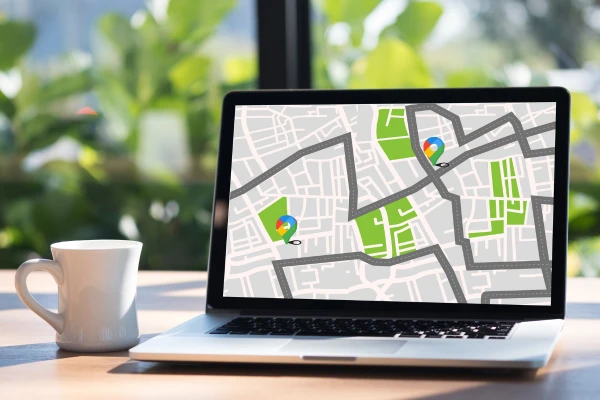


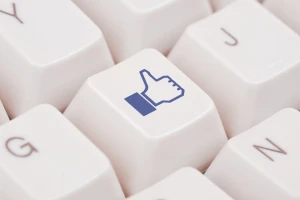

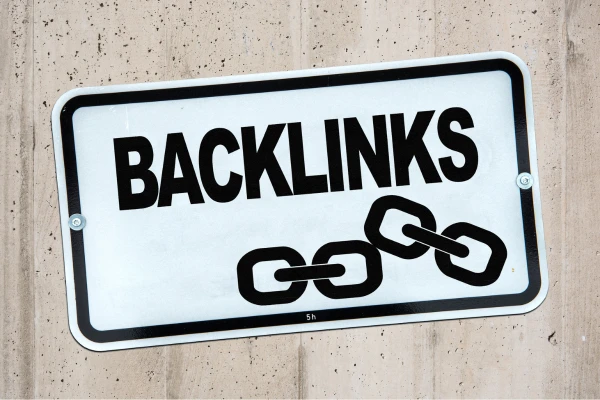


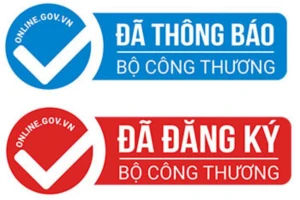


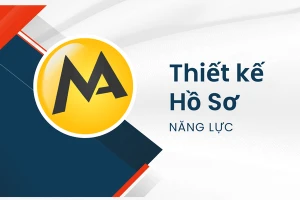









Share your review